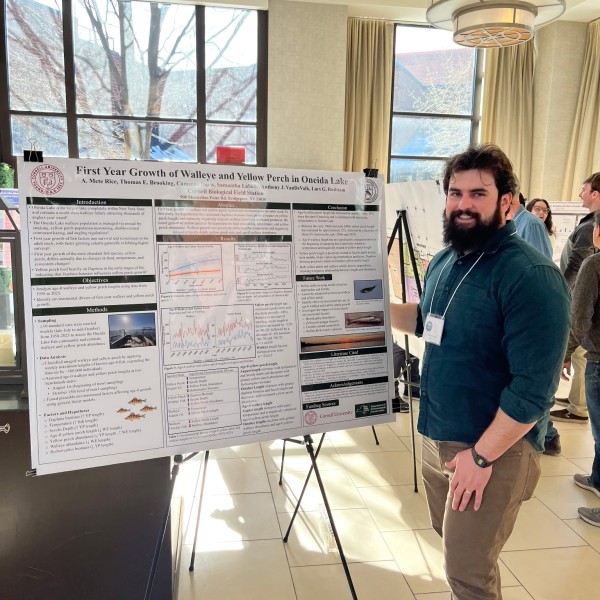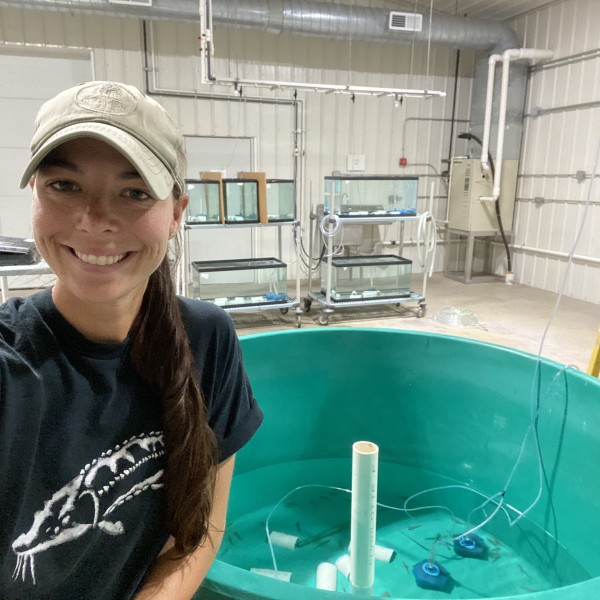Lars Rudstam and Taylor Brown recently participated in the 2023 Great Lakes Cisco and Lake Whitefish Early Life History Workshop, jointly organized by the U.S. Geological Survey and the Great Lakes Fishery Commission. The workshop was held from August 16-18 at the Michigan State University W.K. Kellogg Biological Station.
Fisheries goals across the Great Lakes include the sustainable management of lake whitefish (Coregonus clupeaformis) stocks and conservation of cisco (C. artedi) populations. Critical to achieving these goals is filling knowledge gaps on the early life history and recruitment of these species, in particular understanding how, when, and where to sample these fishes for the design of long-term monitoring programs. The workshop focused on refining best sampling practices for early life stages through the development of conceptual models of habitat use and biophysical drivers of survival across early life stages for each species. Participating scientists and practitioners also identified research priorities for reducing uncertainty regarding habitat use and recruitment constraints on these important species.





